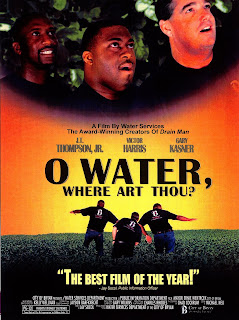 Okay, so I’m sure I’m not the only person who felt a little bad for Marty Schottenheimer when he had another playoff game slip away, losing to the Patriots 21-24. I felt bad because I knew I would wake up this morning and hear everyone calling for Marty’s job…sure enough Chargers fan David James (along with most of the nation) is calling for Marty’s firing. Here.
Okay, so I’m sure I’m not the only person who felt a little bad for Marty Schottenheimer when he had another playoff game slip away, losing to the Patriots 21-24. I felt bad because I knew I would wake up this morning and hear everyone calling for Marty’s job…sure enough Chargers fan David James (along with most of the nation) is calling for Marty’s firing. Here.
But in thinking about Marty I heard Colin Cowherd on the radio comment…“NFL head coaches are like our mayors. They are visible and the easiest to rip.” So do Andy Reid, Schottenheimer, Billick, and Holmgren have anything in common with Mayors Dolan, Curtis, Seghini, or Billings? Maybe they do, think about it…when something goes bad in a city who is the first to be blamed? The Mayor.
However, the Mayor is just a piece in the puzzle, just like the Head Coach. Sometimes we need to take a step back and look at the entire picture (or puzzle) before assigning blame…but oh it is so much easier to place blame on the most visible figure.
 Maybe we need to take a minute to thank these visible figures while everything goes well—instead of waiting for events to go bad and blame them. Layton residents could start with Mayor Curtis ...pictured here, taking the time to try on the fire uniform with the Layton Fire Department.
Maybe we need to take a minute to thank these visible figures while everything goes well—instead of waiting for events to go bad and blame them. Layton residents could start with Mayor Curtis ...pictured here, taking the time to try on the fire uniform with the Layton Fire Department.
 My office spring cleaning is beginning by changing my blog. I've had this blog for a 7 or 8 months and I'm tired of the title and the format...so I'm turning over a new leaf and turning to word press. The name of the new blog is The City Cafe. What does that mean? I'm not really sure...but it allowed me to incorporate a photo I really like into the header. So The City Cafe will remain a blog that discusses all things related to cities, with a focus to local government fiscal policy. I look forward to your comments.
My office spring cleaning is beginning by changing my blog. I've had this blog for a 7 or 8 months and I'm tired of the title and the format...so I'm turning over a new leaf and turning to word press. The name of the new blog is The City Cafe. What does that mean? I'm not really sure...but it allowed me to incorporate a photo I really like into the header. So The City Cafe will remain a blog that discusses all things related to cities, with a focus to local government fiscal policy. I look forward to your comments.















